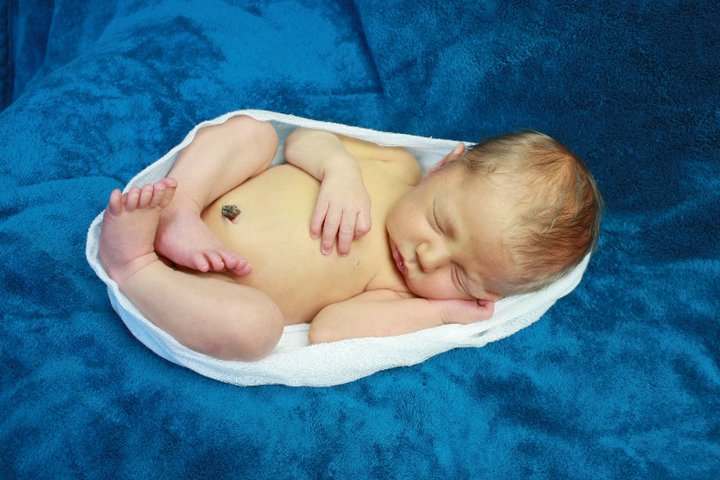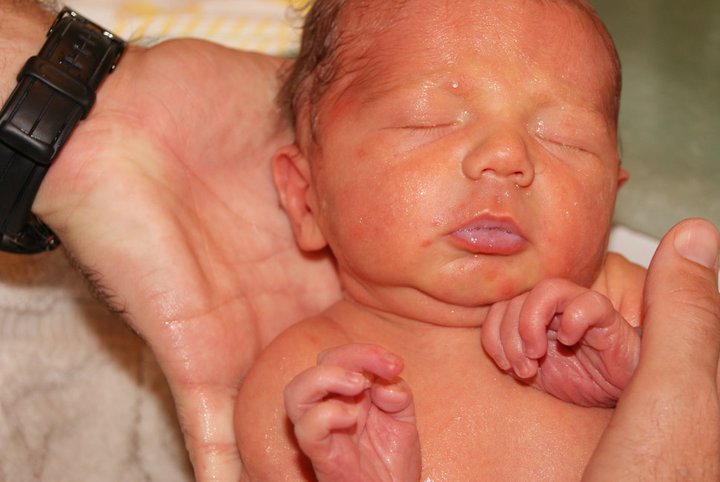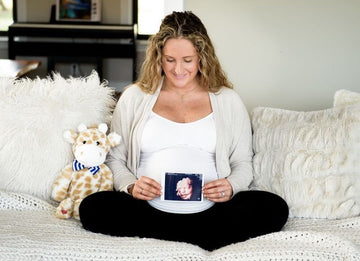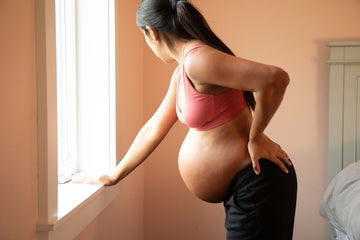Jaundice: When Your Baby Looks Yellow

Why can't babies come with instruction manuals?
Why can't they give an hour crash course before sending you home?
Even if they did, would it really change how much a parent worries?
The last thing you are thinking after bringing your baby home is if she'll change colors.
Yes, you read that right - change colors. But yet, almost all newborns do change from that rosy red-ish pink to a tinted yellowish color. Sometimes it's not that noticeable, while other times (especially when dressed in yellow) it is apparent that the baby is actually yellow! Most parents overlook it until they see the whites of their baby's eyes start turning yellow - and then the panic sets in. "WHY IS MY BABY YELLOW?"
This is called jaundice and it occurs in almost all newborns. While jaundice can be dangerous at extremely high levels over a prolonged period of time, typical newborn jaundice is nothing to worry about. (Perhaps you may want to edit pictures to black and white for a week or so!)
But what exactly is jaundice?
Why does it happen?
How can you help your baby through jaundice as quickly as possible?
What is Jaundice?
When a baby's body breaks down the red blood cells after birth, bilirubin is released into the bloodstream. The liver should break down this yellow substance, but most newborns' livers aren't quite ready to do this!
Because of this delay, the skin and eyes turn a bit yellow.
The earlier a baby is born, the higher the chances are of jaundice occurring. But it is normal, so don't panic just yet. A simple test at the pediatrician's office can find your baby's exact bilirubin levels. If the number is higher than expected, you'll be asked to come back in about 48 hours to ensure the number is dropping.
Jaundice babies can struggle with staying awake to eat. Breastfed babies may stay yellow a bit longer than formula-fed babies because their bodies are processing the bilirubin naturally. Supplementing with formula may be suggested but is typically not needed. While jaundice may fade quicker, it may impact the milk supply, the baby's latch, and the overall breastfeeding journey.
How Can You Help?
- Babies eliminate the bilirubin by pooping. You can encourage plenty of poop by breastfeeding your baby around the clock and avoiding a schedule. You want your baby getting as much milk as possible!
- Have your baby checked for lip and tongue tie, as these can affect your baby's latch and ability to transfer milk well.
- Take your baby outside! Vitamin D from sunlight helps your baby process the bilirubin.
- Light Therapy is also an option if levels are on the border of normal and high. A NICU stay is not needed unless levels are too high and not decreasing, but a Bili-Blanket can be rented and brought home.
To all the new moms and moms-to-be... there will be a lifetime of things to worry about, try not to let a little bit of yellow stress you out!
Learn more about newborn jaundice on AmericanPregnancy.org










